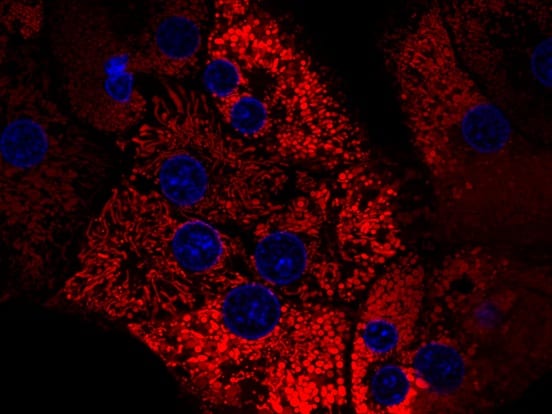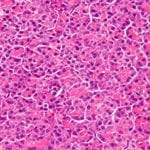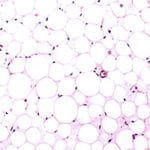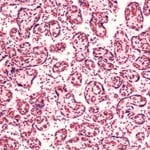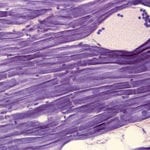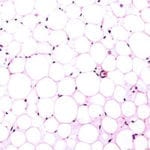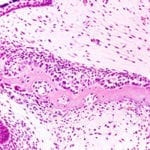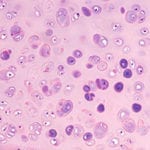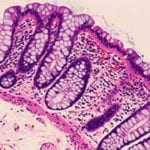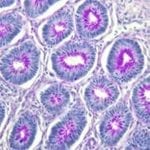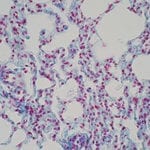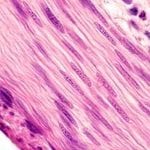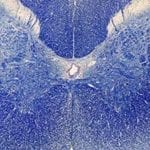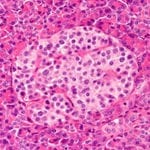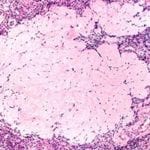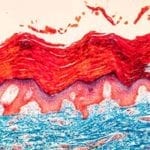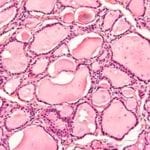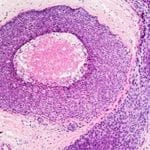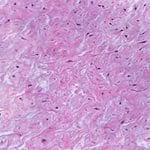With a range of quality levels available, including research grade, GMP grade, and animal-free, these enzymes offer the optimal solution for cell isolation, whether you are carrying out basic or clinical research. The stringent quality control systems in place during the manufacturing of Collagenase NB and Neutral Protease NB ensure that the enzymes are of the highest standard and offer reliable lot-to-lot consistency, delivering high yields of viable cells with every use.
Find out which Collagenase NB or Neutral Protease NB is best for your application >
Features
- Lot-to-lot consistency you can rely on
- Isolate high yields of viable cells
- Animal-free and GMP grade Collagenase NB and Neutral Protease NB available, offering superb quality and performance
Applications
- Gentle and efficient tissue dissociation
- Isolation of wide range of cells, including sensitive hepatocytes, islets of Langerhans, and tumor cells
- Isolation of cells for tissue engineering and regenerative medicine
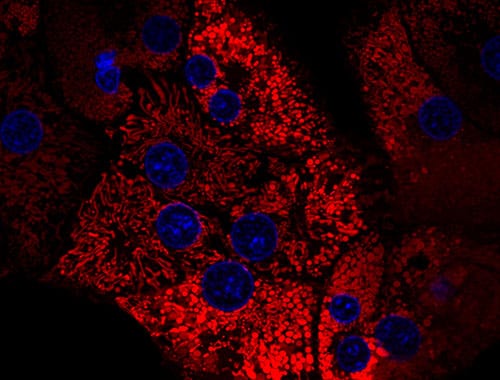
Animal-Free GMP Grade Collagenases and Neutral Protease
These Animal-Free (AF) enzymes offer the highest possible safety and reduced regulatory hurdles for clinical applications. They are manufactured under GMP guidelines using a plant-based production process that guarantees no risk of cross-contamination with animal-derived materials. Due to the stringent quality control systems in place, these enzymes are ensured to be of the highest quality and have a reliable lot-to-lot consistency.
GMP Grade Collagenases and Neutral Protease
GMP Grade Collagenase and Neutral Protease are essential tissue dissociation enzymes for tissue engineering and regenerative medicine applications. These enzymes are manufactured under GMP guidelines with certified TSE safety and virus validation studies carried out. The high level of quality control involved in the production of these enzymes means that they have reliable lot-to-lot consistency with accurate analysis of proteolytic enzyme activities.
Research Grade Collagenases and Neutral Protease
These research grade enzymes come in a range of enzymatic activities, from standard collagenases, offering balanced amounts of other proteolytic activities, to highly purified collagenases. As each application requires different digestion conditions, this large range of Collagenase NB and Neutral Protease NB products offers optimal digestion conditions for a wide variety of tissue types.
| Name | Datasheet | Packsize | Order |
|---|---|---|---|
| Clostripain NB | >=200 U | View | |
| Collagenase NB 1 Premium Grade | >=2000 U (PZ) | View | |
| Collagenase NB 4 Standard Grade | 1 g | View | |
| Collagenase NB 4 Standard Grade | 5 g | View | |
| Collagenase NB 4 Standard Grade | 500 mg | View | |
| Collagenase NB 4G Proved Grade | 1 g | View | |
| Collagenase NB 4G Proved Grade | 5 g | View | |
| Collagenase NB 4G Proved Grade | 500 mg | View | |
| Collagenase NB 5 Sterile Grade | 1 g | View | |
| Collagenase NB 7D Gentle Grade | 1 g | View | |
| Collagenase NB 7D Gentle Grade | 5 g | View | |
| Collagenase NB 7D Gentle Grade | 500 mg | View | |
| Collagenase NB 8 Broad Range | 1 g | View | |
| Collagenase NB 8 Broad Range | 250 mg | View | |
| Neutral Protease NB | 100 U (DMC) | View | |
| Neutral Protease NB | 50 U (DMC) | View | |
| Neutral Protease NB High Active Grade | 80 U (DMC) | View |
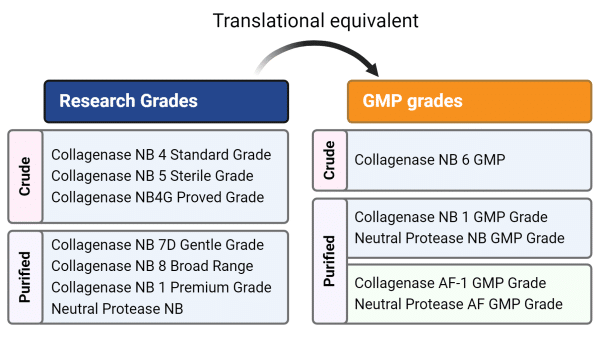
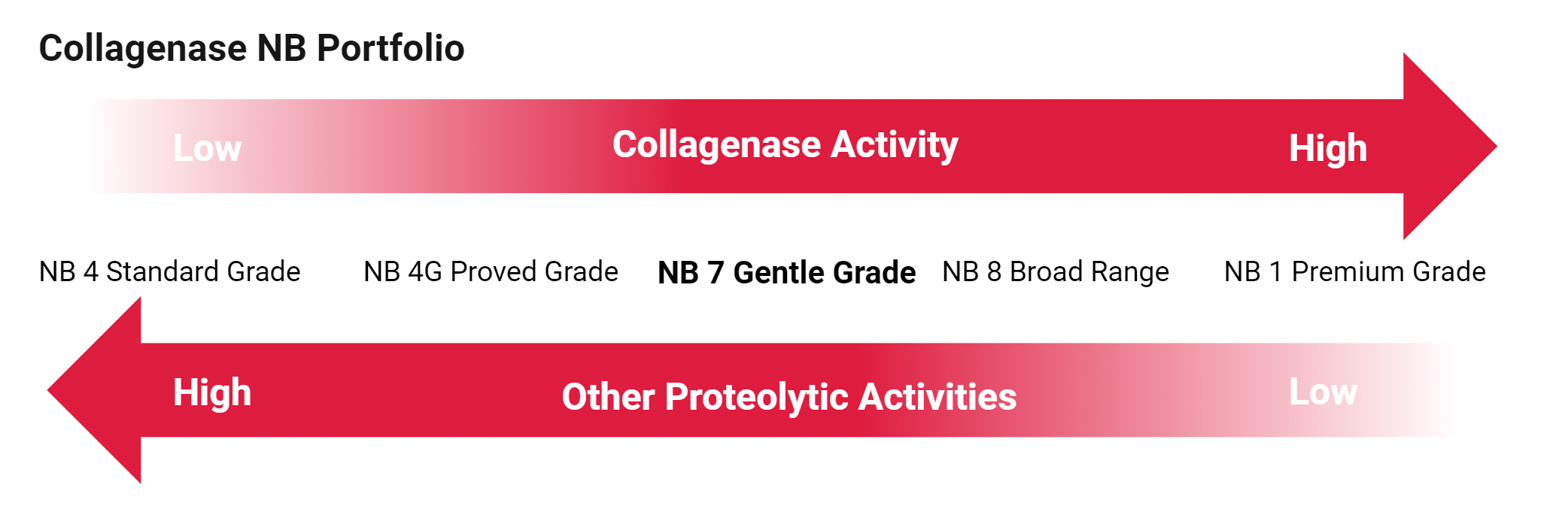
Choosing the Right Tissue Dissociation Enzymes
To ensure consistent results, you should endeavour to follow the isolation protocol best suited to your application. The tissue/cell type you are using alters the required Collagenase NB concentration, as well as the isolation procedure. We recommend dosing Collagenase NB by activity (PZ units), not by weight to achieve consistent results. Suggested concentrations should be considered as starting points and the progress of the digestion process should be monitored visually in order to determine the optimal conditions. Choose your intended tissue/cell type below to discover which Collagenase NB products are best suited to your application and download the protocols.
By Cell Type
All of the cell types below have been successfully isolated using Collagenase NB products. Choose your cell type from the list below to find out which Collagenase NB products are best suited to your application and download the protocols:
Can’t find your cell type? Visit our Collagenase NB and Neutral Protease applications page for a fuller list or Contact us for more protocol details.
By Tissue Type
All the tissue types below have been successfully isolated using Collagenase NB products. Choose a tissue type to discover which Collagenase NB products are best suited to your application and download the protocols.
Can’t find your tissue type? Contact us for more protocol details.
Collagenase NB and Neutral Protease NB FAQs
General Information
Collagenases are metalloproteinases originating from the gram positive bacterium Clostridium histolyticum. There are two classes of clostridial collagenase, which are collagenase class I and collagenase class II. They are generated by expression of their respective genes colG and colH.
Collagenases cleave peptide bonds in the triple helical collagen molecule of human or animal tissue in situ. Both classes differ in their activity towards the collagen molecule. It is assumed that collagenase class I cleaves the intact collagen helix into smaller peptides which are a substrate to collagenase class II and that thus both classes act synergistically in efficient digestion of collagen. All Collagenase NB products contain both collagenase classes.
Neutral protease is a protease originating from the gram positive bacterium Clostridium histolyticum. It is mostly used in combination with collagenase for tissue dissociation.
The range includes several Collagenase NB and Neutral Protease NB products which can be differentiated according to their purification level (unpurified, purified, highly purified) and field of application (research, clinical).
Collagenase NB 4 Standard Grade and Collagenase NB 4G Proved Grade contain a balanced mix of proteolytic activities. Collagenase NB 4G Proved Grade has a higher collagenase activity (≥ 0.18 PZ U/mg) compared to Collagenase NB 4 Standard Grade (≥ 0.10 PZ U/mg). The proteolytic side activities are also increased accordingly.
Collagenase NB 5 Sterile Grade and Collagenase NB 6 GMP Grade show comparable enzymatic properties to Collagenase NB 4 Standard Grade with a collagenase activity of ≥ 0.10 PZ U/mg and a balanced amount of proteolytic side activities. Collagenase NB 5 Sterile Grade is sterile according to Pharm. Eur. Collagenase NB 6 GMP Grade is manufactured according to cGMP guidelines and is also sterile according to Pharm. Eur.
Collagenase NB 8 Broad Range is a purified collagenase. Thus it contains higher collagenase activity (≥ 0.9 PZ U/mg) and reduced proteolytic side activities.
Collagenase NB 1 Premium Grade and Collagenase NB 1 GMP Grade are highly purified collagenases. They show a high Collagenase activity (≥ 3.0 PZ U/mg) and nearly completely reduced side activities. The products have comparable enzymatic activities, but Collagenase NB 1 GMP Grade is manufactured according to GMP guidelines.
Neutral Protease NB and Neutral Protease NB GMP Grade have comparable enzymatic activities and have an activity of ≥ 0.5 DMC U/mg. Neutral Protease NB GMP Grade is manufactured according to GMP guidelines. Neutral Protease NB High Active Grade is purified and thus has a higher activity (≥ 5.0 DMC U/mg). It is not available as GMP grade.
| Cat. No. | Product | Collagenase activity | Proteolyic side activities |
|---|---|---|---|
| S1745401
N0002778 N0002779 |
Collagenase NB 4 Standard Grade Collagenase NB 5 Sterile Grade Collagenase NB 6 GMP Grade |
+ | ++ |
| S1746501 | Collagenase NB 4G Proved Grade |
++ | +++ |
| S1745601 | Collagenase NB 8 Broad Range |
+++ | + |
| S1745503
N0002937 |
Collagenase NB 1 Premium Grade Collagenase NB 1 GMP Grade |
++++ | - |
All Collagenase NB and Neutral Protease NB products are derived from Clostridium histolyticum. C. histolyticum is an anaerobic, gram-positive bacterium, which naturally produces collagenases and neutral protease.
Collagenase NB 1 GMP Grade, Collagenase NB 1 Premium Grade, Neutral Protease NB GMP Grade, Neutral Protease NB and Neutral Protease NB High Active Grade are 0.2 µm filtered prior to lyophilization but they are not manufactured aseptically. Therefore they are not sterile according to Pharm. Eur.
For Collagenase NB 1 GMP Grade and Neutral Protease NB GMP Grade a microbiological examination is performed. The specifications and results for absence of clostridia, total aerobic microbial count (TAMC), and total combined yeast/mould count (TYMC) are stated on the lot-specific certificate of analysis.
Collagenase NB 6 GMP Grade and Collagenase NB 5 Sterile Grade are sterile according to Pharm. Eur.
All other Collagenase NB and Neutral Protease NB products are not sterile.
Collagenase NB 6 GMP Grade and Collagenase NB 5 Sterile Grade are sterile according to Pharm. Eur.
Collagenase NB 1 and Neutral Protease NB grades are especially suitable for isolation of islets of Langerhans from human pancreas. Pack sizes for these enzymes are especially designed for digestion of one human pancreas.
Since the other Collagenase NB products are suitable for various applications a special pack size is not required.
Stability and Storage
Collagenase NB and Neutral Protease NB products are provided as a lyophilized powder. They should be stored at +2 to +8 °C (if not stated otherwise on the certificate of analysis) in a dry environment. Under these conditions the products are stable until the expiry date stated on the certificates of analysis. Repeated opening and closing of the vial should be avoided.
Stability of Collagenase NB and Neutral Protease is ensured until the expiry date stated on the certificate of analysis. To guarantee a constant performance, the non-GMP grade products are regularly retested and according to the results the expiry date may be prolonged.
A lot-specific certificate of analysis which states the expiry date of the product is delivered with every Collagenase NB or Neutral Protease NB.
The expiry date of Collagenase NB 1 GMP Grade, Neutral Protease NB GMP Grade and Collagenase NB 6 GMP Grade is also stated on the label of the vial.
Please contact us if you want to receive a certificate of analysis of a specific lot.
We recommend making a stock solution by dissolving the Collagenase NB in an appropriate volume of buffer, e.g. HBSS, PBS, Tris or Ringer solution. The reconstituted enzyme should be sterile filtered (if not sterile), aliquoted, and stored at -20 °C. Our stability studies show that the enzyme is stable for one year under these conditions, if repeated freeze and thaw cycles are avoided.
If the vial is opened and closed several times the lyophilisated enzyme comes in contact with air moisture which might decrease its activity.
Yes, these solutions can be 0.22 µm filtered. We recommend usage of filters with low protein-binding properties (e.g. cellulose acetate, PVDF, or PES).
Collagenase NB and Neutral Protease NB solutions should be constantly stored on ice until use since the activity decreases significantly if stored at higher temperatures. In general, the solution should be used as soon as possible.
Collagenase and neutral protease activities are at an optimum at 37 °C.
Collagenase activity is at an optimum at pH 7.4.
Neutral protease activity is at an optimum in the neutral pH-range.
It is very important that the enzymes are protected from air moisture. Collagenase and neutral protease are both hygroscopic; therefore the vial should not be opened and closed repeatedly.
If the enzymes come in contact with moisture they could likely lose their activity due to autodigestion.
If the whole product isn’t used at once it is recommended to prepare a stock solution and to store this at -20 °C.
Cell Isolation Applications
Collagenase NB products can be applied for cell isolation from all human or animal tissues containing collagen. Efficient cell isolation with high yields of viable cells could be shown e.g. for pancreas, adipose tissue, cartilage, liver, lung, placenta, heart and many more tissue types. Since collagenase is used both for research applications and in the clinical field, we provide Collagenase NB products as research grades and GMP grades, respectively.
Collagenase NB products are available at different purification levels. Collagenase NB 4 Standard Grade, Collagenase NB 5 Sterile Grade, Collagenase NB 6 GMP Grade and Collagenase NB 4G Proved Grade are unpurified grades which contain a balanced mixture of collagenolytic and other proteolytic activities such as neutral protease and clostripain. These side activities are required for efficient digestion of many tissue types like adipose tissue, cartilage or liver.
For some applications, such as isolation of islets of Langerhans from rodent pancreas, a collagenase with higher collagenolytic activity and reduced side activities is required. For these applications purified Collagenase NB 8 Broad Range is recommended.
For isolation of human pancreatic islets, we offer highly purified Collagenase NB 1 and Neutral Protease NB as GMP and non-GMP grades.
For further information on applications for Collagenase NB, please refer to this page.
Since proteolytic side activities are required for efficient tissue dissociation Collagenase NB 1 is usually used in combination with Neutral Protease NB. Both enzymes are especially suitable for isolation of human pancreatic islets of Langerhans. Since the concentration of both enzymes required for isolation depends e.g. on the age of the donor as well as the organ weight and condition, supply of both enzymes separately allows individual dosing according to these variables.
The collagenase concentration required depends on tissue type and origin as well as on isolation procedure. Therefore, Collagenase NB concentrations stated in the cell isolation protocols should be considered as starting points.
You may increase or decrease the digestion time or increase or decrease the Collagenase NB concentration. Progress of the digestion process should be monitored visually in order to determine the optimal conditions.
We do not recommend a specific buffer since we know that several buffer types, including PBS, Tris, and HBSS work for cell isolation with collagenase.
Collagenase depends on calcium, therefore it is recommended to use a buffer with ≥ 2 mM Ca2+. Collagenase is inhibited by EDTA thus absolutely no calcium chelating agents (e.g. EDTA) should be contained in the buffer.
Digestion progress can be reduced by cooling down, addition of human or fetal calf serum, dilution or washing out of the digestion solution. There is no general recommendation since several methods work and it also depends on tissue and cell type and application.
Since collagenase and some of the secondary proteases depend on calcium, it is recommended to use a buffer with ≥ 2 mM Ca2+.
Absolutely no calcium chelating agents (e.g. EDTA) should be present at all.
Collagenase is reversibly inactivated at high pH values and irreversibly inactivated at low pH values. Inhibitors of collagenase include cysteine or chelating agents like EDTA.
GMP Grade Enzymes
For testing Collagenase NB 6 GMP Grade and establishing protocols we recommend application of Collagenase NB 4 Standard Grade. This non-GMP grade has comparable enzymatic properties to Collagenase NB 6 GMP Grade at a more favorable price. After protocol establishment an easy switch from Collagenase NB 4 Standard Grade to Collagenase NB 6 GMP Grade without changing protocol details is possible.
The same is the case for transfer from Collagenase NB 1 Premium Grade and Neutral Protease NB to Collagenase NB 1 GMP Grade and Neutral Protease NB GMP Grade, respectively.
Yes, Collagenase NB and Neutral Protease NB are regarded as TSE safe.
For GMP-conformant Collagenase NB and Neutral Protease NB products the safety of the raw materials was certified by the European Directorate for the Quality of Medicines (EDQM) by a “Transmissible Spongiform Encephalopathies - European Pharmacopoeia Certificate” (TSE-CEP).
Upon request a letter of access is issued by the manufacturer Nordmark, which allows the use of the TSE-CEP certificate for filing with authorities. Also a TSE risk statement issued by Nordmark is available for customers of GMP products.
For the non-GMP grade Collagenase NB and Neutral Protease NB products a Certificate of Origin is available upon request. The Certificate of Origin states that the product does not contain and is not derived from specific risk material.
For Collagenase NB 1 GMP Grade, Neutral Protease NB GMP Grade and Collagenase NB 6 GMP Grade, stability studies according to ICH guidelines were performed by the manufacturer. Upon request, summary reports of these studies are available for customers of GMP products.
Stability studies for the lyophilisate were performed at following conditions:
Collagenase NB 1 GMP Grade:
| Description | Conditions | Stability |
|---|---|---|
| Long-term storage (glass vial) | -20 °C 5 °C |
3 years 3 years |
| Short-term storage (glass vial) | 25 °C/60 % humidity | 2 months |
| Stress conditions (glass vial) | 40 °C/75 % humidity -85 °C, 5 freeze/thaw cycles |
7 days confirmed |
| Solubilized in Tris buffer | -25 °C -85 °C |
1 year 1 year |
Neutral Protease NB GMP Grade:
| Description | Conditions | Stability |
|---|---|---|
| Long-term storage (glass vial) | -20 °C 5 °C |
3 years 3 years |
| Short-term storage (glass vial) | 25 °C/60 % humidity | 6 months |
| Stress conditions (glass vial) | 40 °C/75 % humidity -85 °C -85 °C, 5 freeze/thaw cycles |
7 days 3 years confirmed |
| Solubilized in water | -25 °C -85 °C |
1 year 1 year |
Collagenase NB 6 GMP Grade:
| Description | Conditions | Stability |
|---|---|---|
| Long-term storage (glass vial) | 5 °C | 5 years |
| Short-term storage (glass vial) | 25 °C/60 % relative humidity | 3 years |
| Stress conditions (glass vial) | 40 °C/75 % relative humidity | 4.8 months |
| Solubilized in Tris buffer | -25 °C -85 °C |
1 year 1 year |
For customers of Collagenase NB 1 GMP Grade, Collagenase NB 6 GMP Grade or Neutral Protease NB GMP Grade, the following documents are available upon request:
- Certificate of analysis
- GMP Certificate
- Manufacturing permit for Collagenase
- EDQM Certificate for TSE safety (TSE-CEP)
- Summary of viral safety study
- Stability summary reports
Further Information
The activity of Nordmark Collagenase NB products is stated in PZ units according to Wuensch. 1 PZ U catalyzes the hydrolysis of 1 µmol 4-phenylazobenzyl- oxycarbonyl-L-prolyl-L-leucyl-glycyl-L-prolyl-D-arginine (PZ) per minute at 25 °C, pH 7.1
(Wünsch, E. & Heidrich, H.G. (1963) Hoppe-Seyler's Z. Physiol. Chem. 333, 149-51).
It is difficult to compare the collagenase products from different suppliers since every collagenase manufacturer has his own production and purification process. In addition suppliers state the collagenase activity in different units.
One option is to choose the suitable Collagenase NB product according to the application. For information on recommended products and application protocols, refer to this page.
Another option is to convert activity units of the collagenase used previously into PZ units.
Collagenase activity is usually stated in PZ units (according to Wuensch), collagen digestion units (CDU, also known as Mandl units) or FALGPA units. There are no exact conversion factors, but the following approximate conversion factors can be applied:
1 PZ U ~ 3.9 FALGPA U
1 PZ U ~ 1000 Mandl U or CDU
In addition, suppliers offer collagenases at different levels of purification, which makes it even more difficult to compare collagenases from different suppliers. An option is to choose the suitable Collagenase NB product and concentration according to the application.
1 DMC Unit catalyzes the cleavage of 1 µmol peptide bond from dimethylcasein (DMC) per minute at 25 °C, pH 7.0, expressed in terms of newly formed terminal amino groups, determined with TNBS
(Lin, Y.-C. et al. (1969) J. Biol. Chem. 244, 789-93).
No, Collagenase NB and Neutral Protease NB products are not tested for mycoplasma.
Collagenase NB and Neutral Protease NB products are not intended for direct application in humans, e.g. for injections or ointments.
Endotoxins are lipopolysaccharides which are major constituents of the outer cell membrane of gram-negative bacteria.
The following products are currently tested for endotoxins:
